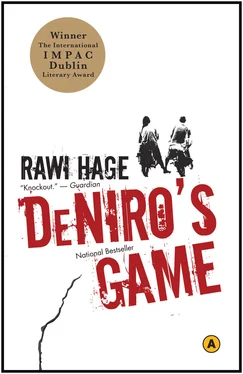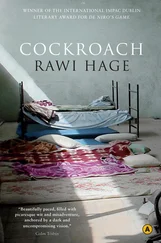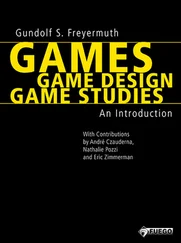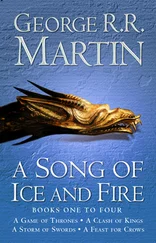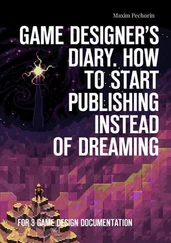Let’s have some tea, I said.
Roland slowly turned, and when he saw me he smiled.
Ah, te voilà. We were looking for you last night. We wondered if you would be leaving today.
I know. That is why I came.
Roland took off his gloves and his coat. No need for the gun. Come sit down, he calmly said to me. He went into his living room and sat.
I took a chair in the corner and let my gun hang loose in my hand.
You are a stupid idiot, he said to me. Listen, I will give you one more chance, and it is your last chance, he said. Put that gun down.
I lifted it and pointed it at his face. I am the one who should be giving chances here, I said.
Fine. He nodded.
The man with the bandage works for you, I said.
Moshe, you mean? Yes, he does.
Did you ask him to beat up Rhea? I said.
It is touching that you care. Sit down and do not be a stupid romantic.
Why did you beat her? I asked.
Because she is mine. Rhea has always been mine, since she was fifteen. Do you understand? Rhea’s father worked for us. After his death, I took care of her. The mother is a shopaholic, an empty society lady. Rhea was a neglected woman. Listen, my little boy, you are stepping into dangerous zones. But the good news is that we need something from you.
I have nothing to offer you, I said.
We need you to tell us what happened to George.
Why should you care about George?
George worked for us.
Us?
Yes, the Mossad. Us. We recruited him on his trip to Israel. George knows all about his father. We suspected that Abou-Nahra was opening up to the Syrians. He will probably get even closer to them — especially now, after the assassination of Al-Rayess. Al-Rayess was our man in the region. We armed his militia, trained them, and gave them strategies. You see, George kept track of him, he got close to him. And Abou-Nahra trusted him.
George was an agent?
Yes. A smart and a good one. So should you be, my boy, a smart and a good one. You tell us where George is. We know that the last time he was seen, he had volunteered to pick you up from your home. He wanted to ask you a few questions about your involvement with the Al-Rayess assassination. We know. We have agents with those Christians. All we have to do is ask. Talking to us is your only hope. You cannot go anywhere without our consent. Do you understand?
How much does Rhea know about this?
Only a little, Roland said. Only that we want you to tell us more about George.
What about the visa to Canada?
You would have been stopped at the airport in Paris, put in jail for fraud. . And we would have intervened, giving you the option of release and a good lawyer if you told us what really happened to George. You would be in jail. What better place to keep you locked up than in a legitimate jail? And if you did not speak, we would have sent you a nice, big, loving guy to be your friend, if you know what I mean. You are small in this game, very small, Roland said. I will give you a few minutes to think. You lay the gun down on the coffee table if you want to talk. We can do something for you, maybe; if you do not talk, you will not go anywhere, believe me.
I stood up, pointed the gun in his face, and said, Put your hands on your head.
He did.
I frisked him and grabbed his wallet and sunglasses. There were a few hundred francs in the wallet. I took them.
On the floor, I ordered.
My men will be here in a minute, Roland said. I am giving you a last chance.
Do not move or I will shoot you, I said.
You are a petty thief! You are un idiot , he shouted from the carpet.
I stomped on the sunglasses and broke them. Then I rushed to the phone on a nearby table and pulled the wire from the jack. I tied Roland’s hands with the wire, and took the house keys from his pocket. I walked toward the door and opened it slowly. When I saw nothing, I closed the door behind me and locked it. I ran down the stairs and into the streets, then through the back alleys toward Rhea’s apartment.
WHEN I REACHED Rhea’s place, I called her from a phone booth across the street.
Didn’t I tell you not to call me again? she said. And anyhow, don’t you have a plane to catch?
I want to tell you about George now, I said.
She was silent for a moment. Then she said, Tell me.
It is not good, I said. The news is not good. I am across the street. Open your door to me.
When she agreed, I took the stairs up. I did not want to wait for the metal elevator to lift my thumping heart.
Rhea opened the door in tears. She held on to me briefly, and then, as if realizing that she was in the arms of the messenger of death, she pushed herself back and held her hand over her mouth.
So you’ve known all long what happened to George, she said.
The last time I saw George, it was just before I left, I told her.
She waved her hand to invite me into her home. When I entered, she turned her back to me, sobbing. I laid my hand on her back, but she shook her head. I held her shoulders and turned her gently toward me. She was still crying, and her tears spilled down her face.
George was my brother, I said.
I took a deep breath, then spoke without stopping. Once, George and I took our hunting guns and entered the high mountains, I began. We stood still like snakes, holding erect barrels and venomous powder. We stood still and watched for branches bowing under the weight of a feather, bowing to a mating call. And soon we wounded a little bird. I held it in my hand.
Kill it if it is still alive, George told me. Kill it!
But I couldn’t bring myself to kill that little bird. Its beak opened and closed in silence, as if it was asking me for water. Its eyes began to close above my palm.
Kill it! Why are you looking at that wounded bird? Kill it and release it from its suffering. Finish it off. Your brother sounded irritated.
But I waited for the bird to fly again.
George snatched the wounded creature from my open palm. He laid it on a rock, and with the butt of his rifle he hit it on the head, more than once, and then he walked away, looking for more.
Why are you telling me this story? Rhea asked.
George and I killed more than birds, I told her.
People?
Yes, I said, and I told her about killing Khalil, and about our money scams, and our silent quarrels, and about George joining the militia. I told her all about Monsieur Laurent, and Nicole, and my torture.
Rhea listened, leaning her body against the sink, at times looking me straight in the eye, and at other times looking at the floor or the ceiling. Then she said, So, you are telling me all this, but where is George now?
I did not answer her directly. Instead, I continued talking about the massacre at the camp. I described to her what George had told me about the lights, the dog, the birds, the cadavers that piled up and rotted, the axes, the rivers of blood.
I talked and Rhea shook her head. Finally, she interrupted me, shouting, Okay, that is enough now. I don’t know. . I don’t know why you have to come here now and tell me all this. She shook her head again. And you waited all this time to talk to me. Do you think it is a game? You waited, and where is my brother now? You tell me all these things, things that I do not know are even true. We don’t know you. I don’t know who you are. And yet you come and tell me all these evil things.
I ignored her shouting. I ignored her small eyes, and her twitching cheeks, her brown dress. I ignored her protest, and when she tried to leave the room, I held her back, cornered her against the kitchen sink. I told her about the night her brother took me under the bridge.
This is all confusing, Rhea said. Your stories are not making sense. I do not know these people you are talking about. You come here like this, and expect me to listen to it all. I need to leave, she said. Please let me go.
Читать дальше
